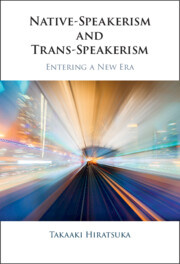2024.07.26
国際学部教授・平塚貴晶によるケンブリッジ大学出版の新刊のお知らせ
教授・平塚貴晶がケンブリッジ大学出版から書籍「ネイティブスピーカリズムとトランススピーカリズム」を出版しましたのでお知らせいたします。
本書は、語学教育において不平等な力関係を助長する深く根付いた偏見であるネイティブスピーカリズムに言及しています。解放的な概念であるトランススピーカリズムを紹介することで、広く蔓延するバイアスを取り除き、言語教育界の言説を再構築することを目指しています。グローバル英語話者(GSE)、グローバル英語教師(GTE)、グローバル英語研究者(GER)といった包括的な呼称を提案し、周縁化を維持するラベル(ネイティブなど)からの転換を求めています。更に、本書はこれまでの研究を体系的にレビューし、ネイティブスピーカリズムを批判し、すべての言語話者、教師、研究者にとって多様性、公平性、包摂性を進展させることを目指しています。言語アイデンティティの地位によって課せられた制約を超え、日本の非ネイティブ英語話者(NNES)の中等学校教師、大学院生、大学教授の声を紹介し、知的および感情的な面で言語実践者および研究者の強み、興味、独自性を強調しています。最終的に、「ネイティブスピーカリズムとトランススピーカリズム」はすべての語学教育者、研究者、政策立案者に対し、偏見に反対し、多種多様な言語を受け入れ、より平等な語学教育環境を創造することを奨励しています。
We are thrilled to announce that Professor Takaaki Hiratsuka has published a groundbreaking book titled “Native-Speakerism and Trans-Speakerism” with Cambridge University Press.
This innovative volume addresses the deeply embedded prejudice of native-speakerism, which perpetuates unequal power dynamics in language education. By introducing the liberating concept of trans-speakerism, the book aims to dismantle prevalent biases and reshape the discourse in the field. It proposes inclusive designations such as Global Speaker of English (GSE), Global Teacher of English (GTE), and Global Englishes Researcher (GER), urging a shift away from labels that maintain marginalization.
The book systematically reviews previous studies, challenging native-speakerism and seeking to advance diversity, equity, and inclusion for all language speakers, teachers, and researchers. It transcends the limitations imposed by speakerhood statuses, featuring the voices of non-native English-speaking (NNES) secondary school teachers, graduate students, and university professors in Japan. These voices highlight the strengths, interests, and uniqueness of language practitioners and researchers—both intellectually and emotionally.
Ultimately, “Native-Speakerism and Trans-Speakerism” encourages all language educators, researchers, and policymakers to oppose biases, welcome linguistic diversity, and develop inclusive language education environments.
Source
